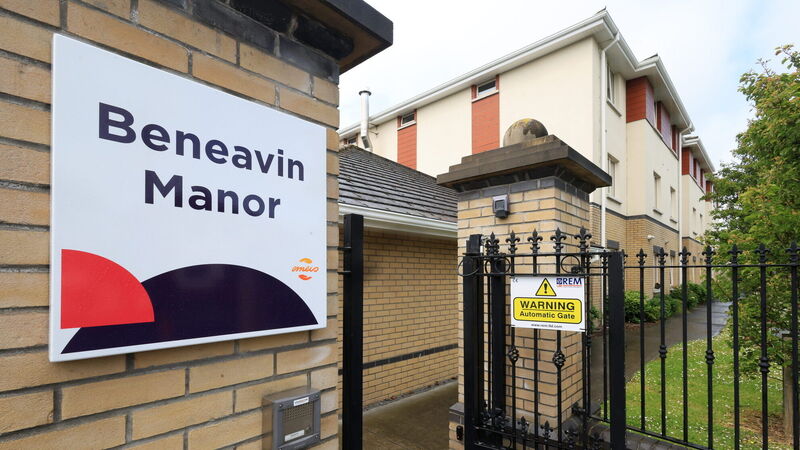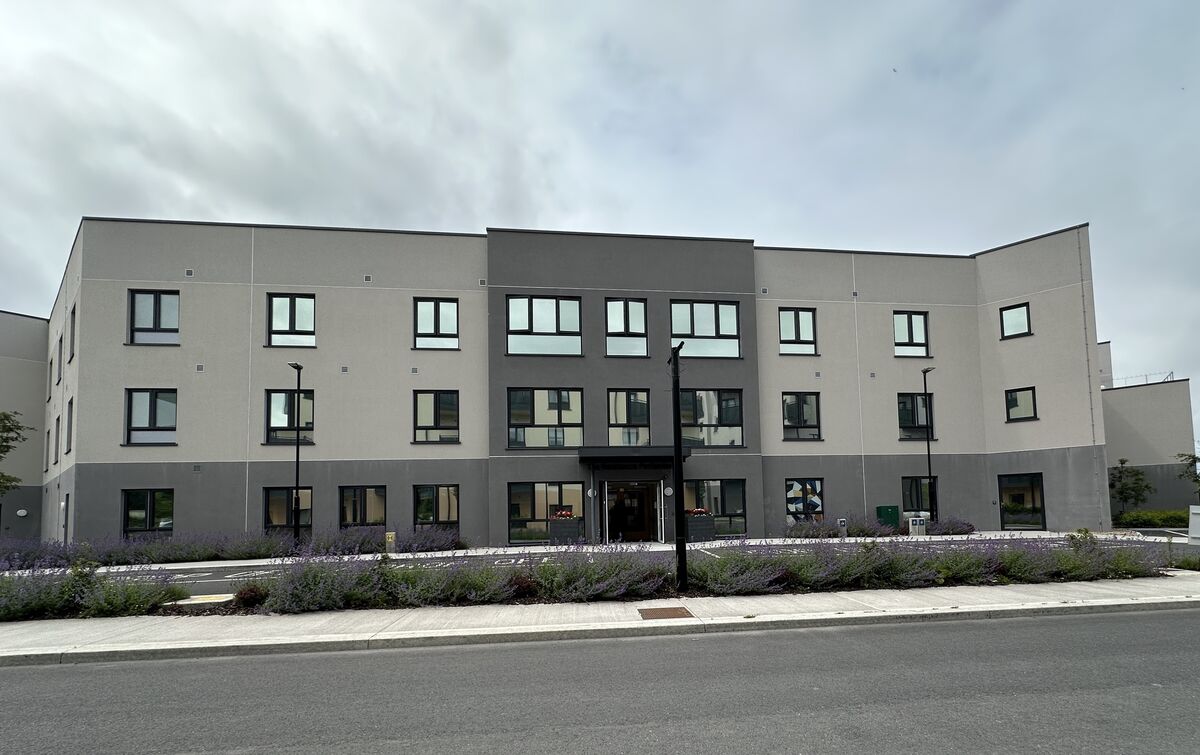Daughter of nursing home resident describes distressing scenes at Beneavin Manor

Helen, whose name has been changed, has an elderly father with vascular dementia who lives at the Beneavin Manor home in Glasnevin, north Dublin. Picture: Sam Boal/Collins Photos
The daughter of a man living in a nursing home which is at the centre of a controversy over the ill-treatment of its elderly residents has told how she repeatedly witnessed things in the home which made her “feel uncomfortable”.
Helen, whose name has been changed, has an elderly father with vascular dementia who lives at the Beneavin Manor home in Glasnevin, north Dublin. She said she was “terrified” over what she would see in an programme broadcast this week about the standard of care in the facility.
The programme detailed how residents at Beneavin and The Residence in Portlaoise – both of which are operated by French corporate Emeis - were often left to sit in their own urine and subjected to manhandling by staff, among many other abuses.
The day-to-day running of both homes was negatively impacted by chronic understaffing and cost-cutting. Helen had been informed by Beneavin in late May that a “media inquiry” was to happen in advance of the broadcast.

She said that when visiting her father she had often seen him and many other vulnerable elderly men left unsupervised in the day room of the home for more than five minutes.
“I had seen things that made me feel uncomfortable. There would be not a single staff member in there. I saw a man fall in the day room and the staff member who attended was very blasé, he just picked him up off the ground saying ‘he’s fine’,” she said.
Her father was previously hospitalised with pneumonia soon after moving to Beneavin. “I called in to see him and he was visibly ill, and they hadn’t called at that stage to say so. I wondered if I hadn’t called in that day would the first I would have heard have been when he was in the ambulance,” she said.
When he returned to Beneavin, she visited him and found him asleep in the day room. “He was too weak to walk or stand,” Helen said.
"I asked ‘could you not move him to his room so he could have a proper sleep?’, and I thought they would use a wheelchair. I couldn’t believe what was happening in front of my eyes when two staff members, one on either side, held him up and shuffled him to his room.”
Helen said she would “like to have my dad placed somewhere else”, and said that family members of residents in the Emeis homes are currently trying to work together in order to agitate for action from the Government.
She said the “most startling” part of the RTÉ broadcast was “the staff member holding the elderly person by his trousers before being placed roughly in a chair”.
“That was hard to watch. I recognised the corridor. My father walks up and down that corridor”.
Emeis was contacted for comment regarding this story but had not responded at the time of writing. The programme has led to calls across the spectrum for legislation on adult safeguarding, which has been promised for well over a decade, to be enacted.
Cork TD and Public Accounts Committee member Eoghan Kenny said the details uncovered represent "a drop in the ocean of failures across care of older people" and said he will be seeking to call nursing homes regulator Hiqa in for questioning given the "huge systemic issues within the organisation".
Read More





